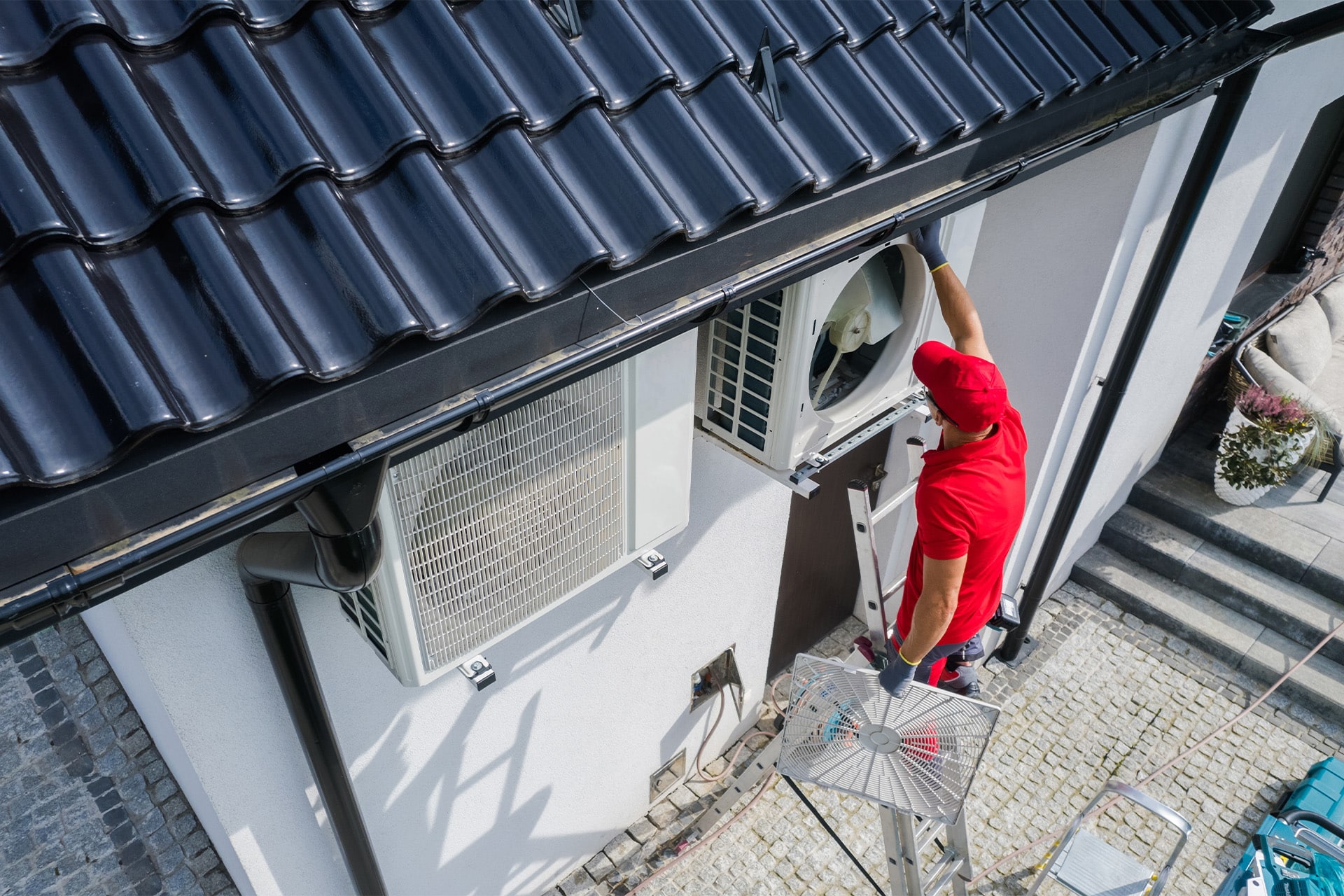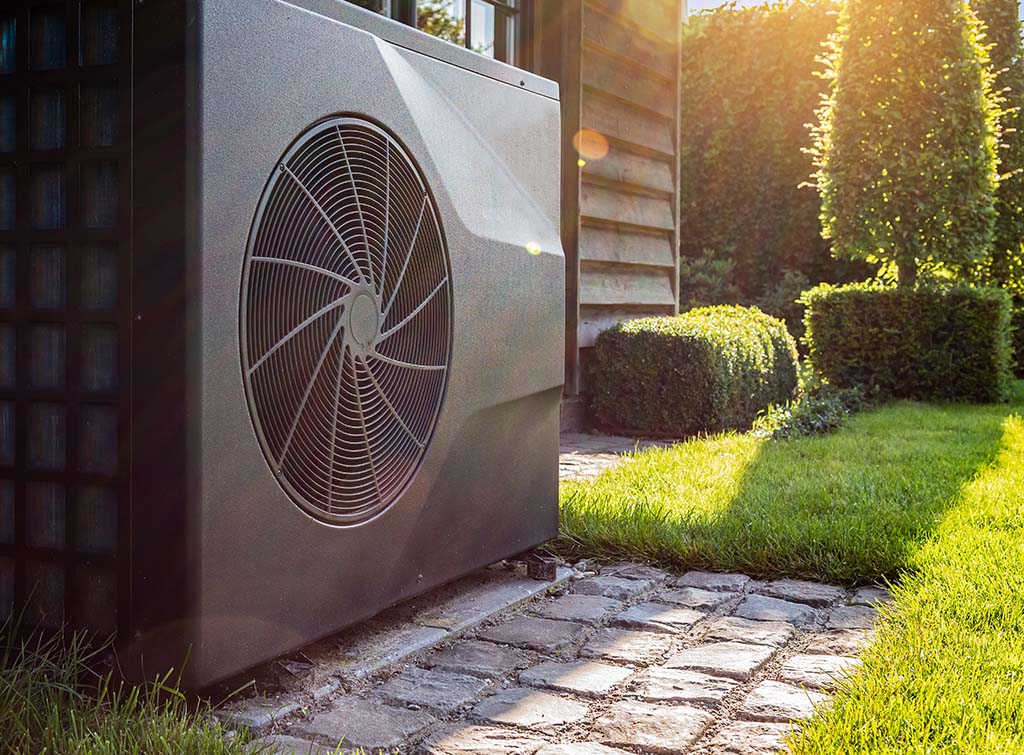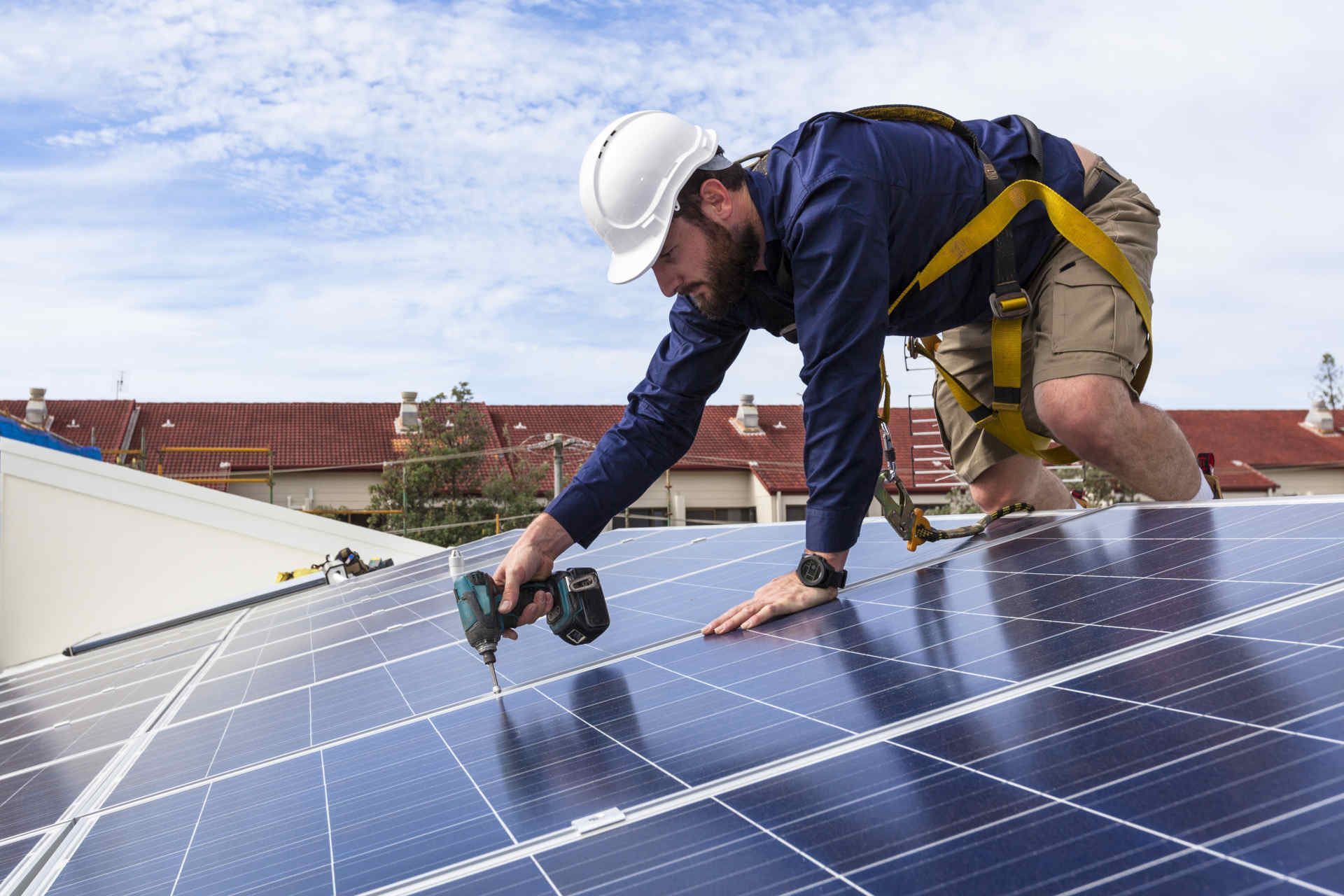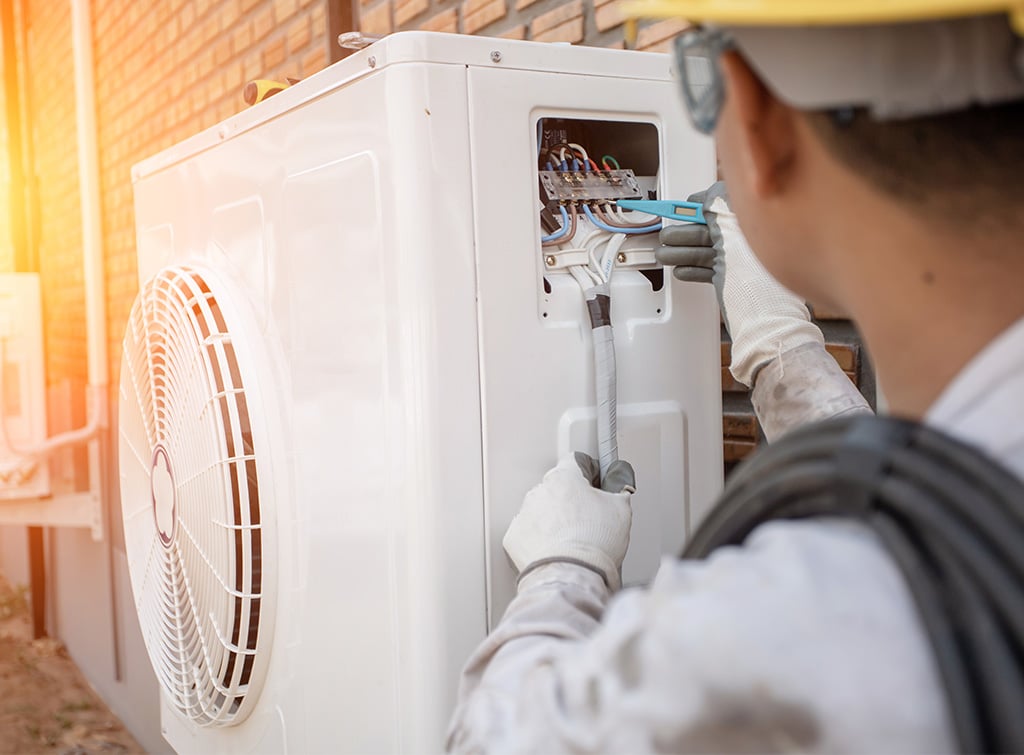Blog>Expert Advice>What's the difference between high, medium and low temperature air source heat pumps?
Last updated: 21 October 2024
What's the difference between high, medium and low temperature air source heat pumps?
Want to embrace new green technology? Our helpful guide looks at the difference between high, medium and low temperature air source heat pumps so you can make the right choice for your home.
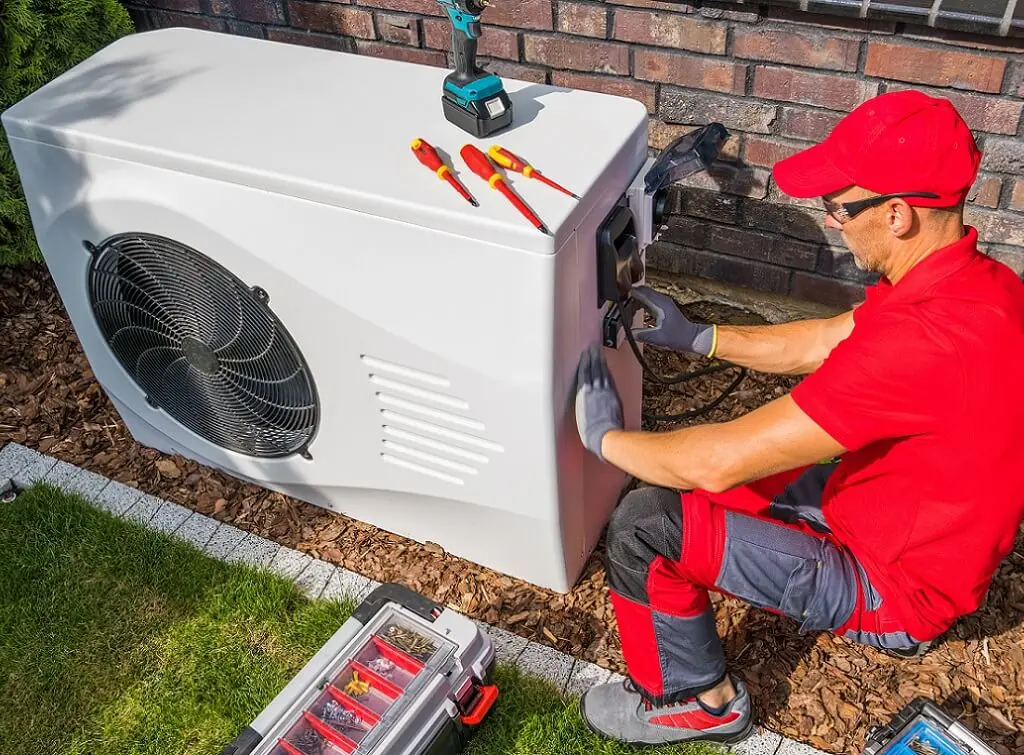
Air source heat pumps (ASHP) are a great way to heat your home efficiently and offer a more sustainable alternative to traditional heating methods. But what's the difference between high, medium and low temperature air source heat pumps?
In this guide, we look at all the different temperature types and how to find local installers who can help.
See the tradespeople we've checked and recommend for your job
What's the difference between high, medium and low temperature air source heat pumps?
An air-to-water heat pump is the most common model in the UK and works by absorbing heat from the air outside before transferring the heat to water. They usually have an indoor and an outdoor unit and work by connecting to various emitters. Often they have integrated hot water tanks.
Using different refrigerants and compressors, air-to-water heat pumps can be low, mid or high-temperature.
But knowing which temperature of heat pump is right for your home is key.
There are three main flow temperature options available:
low temperature which is around a maximum of 55°C
medium temperature which is around 65°C
high temperature which is around 70°C to 80°C
Choosing the right temperature ASHP depends on your home and heating needs.
Let's take a closer look at each type.
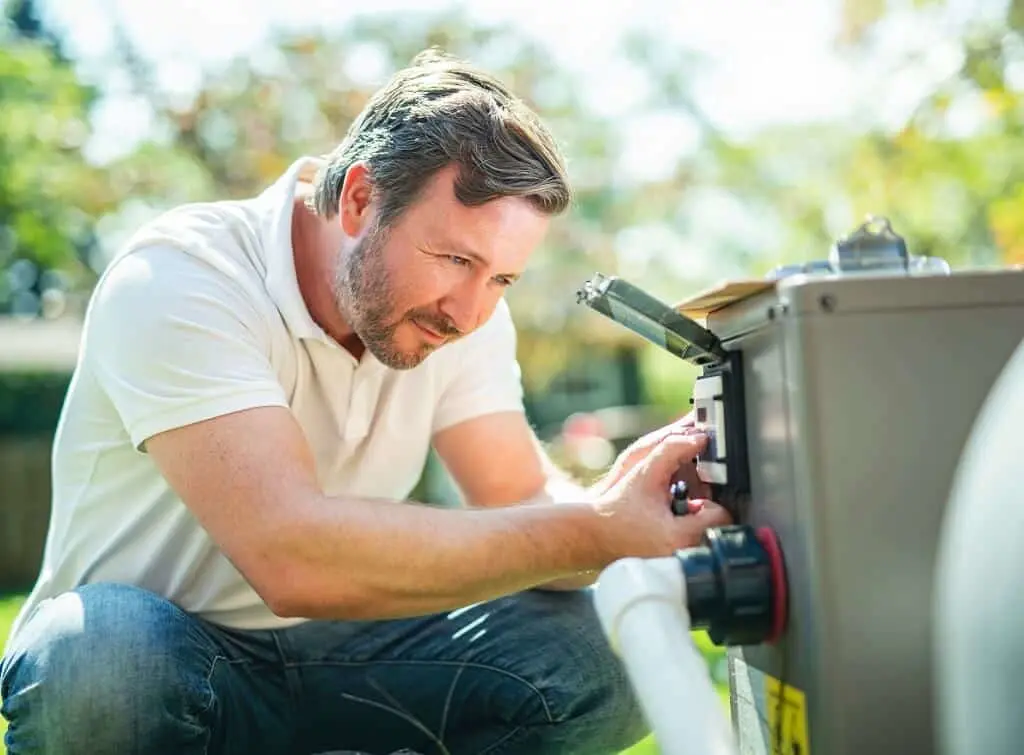
High temperature air source heat pump
These are designed to provide heating at higher temperatures than standard ASHPs.
While conventional ASHPs typically produce hot water at temperatures between 35°C and 55°C (95°F to 131°F), a high-temperature version can deliver water temperatures up to 80°C (176°F) or higher.
To produce the higher temperatures, this type of air source heat pump often has two different refrigerants and two different compressors.
So why would you need a high temperature air source heat pump?
High temperature heat pumps are suited to older homes that are not as well insulated
They can connect to high-temperature radiators that sometimes require water temperatures up to 70°C, and heat pump convectors
Useful for baths or where large volumes of hot water are required
Good for colder climates, where maintaining a high indoor temperature is critical during winter months
However, do be mindful that all new heat pumps are now capable of producing higher temperatures. Also installing larger radiators in older homes is often the solution to producing more heat - even with a lower flow temperature.
So you probably won't need a true high temperature air source heat pump at home. It's often more useful in commercial properties where large volumes of water are needed.
Choosing the best high temperature air source heat pump can be confusing.
That's why we recommend getting in touch with an air source heat pump engineer who can do a proper evaluation of your home and your needs.
Find air source heat pump engineers near me
Renewable energy systems are advancing all the time, and air source heat pumps offer us a sustainable alternative to traditional fossil fuels. If you’re looking to reduce your home’s carbon footprint and embrace renewable energy, local air source heat pump engineers near you can help. In this guide
Medium temperature air source heat pump
Medium temperature heat pumps are suitable for most types of homes. They are compatible with most radiators too.
Nearly all new air source heat pumps have more modern compressors. This means they can reach flow temperatures up to around 60°C to 65°C.
As far as the techy bits go, R32 refrigerant is a popular choice for energy efficiency, safety and compliance with a low global warming rating.
Medium temperature air source heat pumps are also:
Ideal to replace gas boilers in recent houses, built between 1990 and 2000
Compatible with underfloor heating as well as low temperature radiators
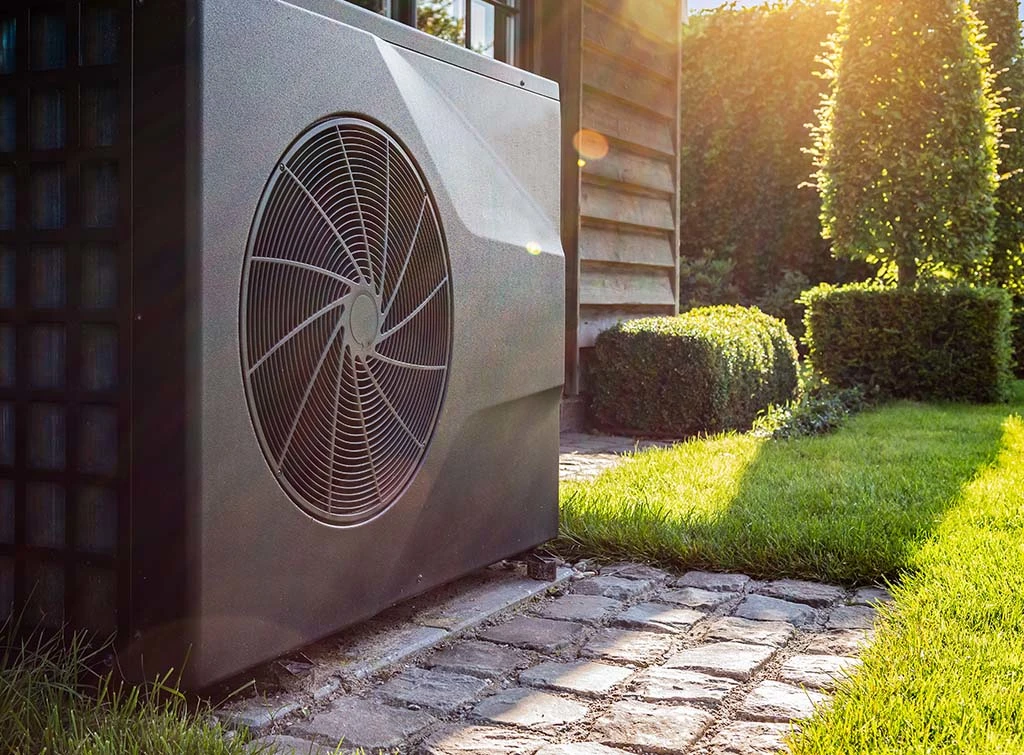
See the tradespeople we've checked and recommend for your job
Low temperature air source heat pump
Up until recently low temperature air source heat pumps have been the most common type to be fitted.
They were the first heat pumps to become available and operate at low temperatures around a maximum of 55°C.
However they used refrigerants such as R410a which has a very high global warming potential and is currently being phased out. No new units will be made that use it.
Not only that the hot water they produce isn't as hot as what you'll get from a boiler. Also larger water cylinders are required and if your radiators aren't big enough, low temperature air source heat pumps might not provide enough heat for your home.
Low temperature heat pumps can be good for:
Systems that don't require water temperatures higher than 55°C
New build homes, as they can connect to underfloor heating, heat pump convectors and low-temperature radiators
What's the cost of running an air source heat pump?
On average, heat pumps cost around £1,540 to run per year.*
Running costs will vary from home to home, so ask your installer if they can give you any information.
Your running costs will be affected a number of factors. Such as:
The efficiency of your chosen pump
Your electricity tariff
Your preferred room temperature
Your home’s insulation
The temperature of where the heat pump is
The cost of running an air source heat pump is therefore quite variable, so don't forget to do your calculations for ongoing running costs before committing.
(*Source: Energy Saving Trust, figures based on September 2024 energy prices, based on average sized 3 bedroom UK property)
Air source heat pump costs in the UK [year]
If you’re looking for a clean way to heat your home while saving money on your energy bills, then an air source heat pump could be for you. Keep reading to find out more about the average air source heat pump cost in the UK.
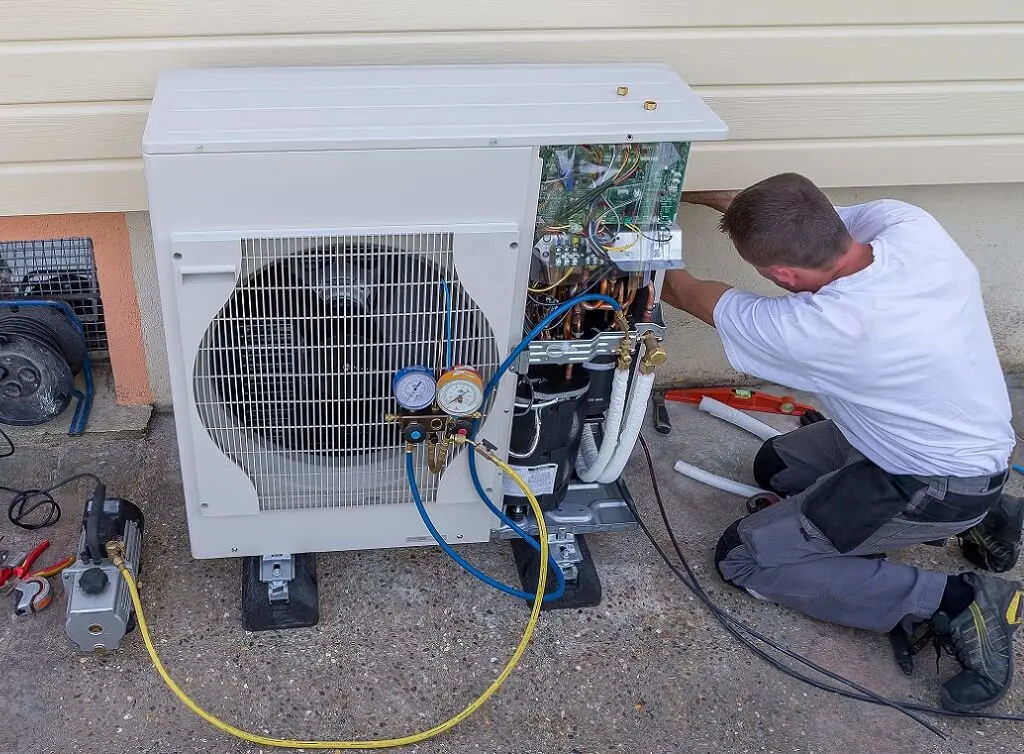
FAQs
What is the most efficient temperature for an air source heat pump?
The most efficient and cost-effective temperature for an air source pump to send heat your radiators is between 35°C and 45°C and around 55°C for heating hot water.
Compare this to fossil fuel boilers, which are designed to send water to your radiators at up to 75 degrees.
You can still heat your home effectively even at these lower temperatures. To do so, you might need to increase the size of your radiators to maximise the surface area for the heat.
A heat pump is always more efficient when run at low flow temperatures, no matter which refrigerant is used.
Are high temperature heat pumps expensive to run?
Yes, high temperature heat pumps are generally more expensive to run than conventional, lower heat pumps.
This is because high temperature pumps use more electricity to run the compressor to create the increased pressures/temperatures. Thus, efficiency is reduced as the flow temperatures increase.
However they are still cheaper than electric panel or storage heaters.
Which is the best air source heat pump in the UK?
No single heat pump is better than the other, they all have their pros and cons. It depends on your home and what type of heat pump system is going to work best and most efficiently.
For a heating system that will heat radiators on your home, you’ll need an air-to-water heating system.
If you’re just looking for a system that will heat the air in your home directly then an air-to-air heat pump would do the job.
Before going ahead with a heat pump project, we would always recommend speaking to local air source heat pump engineers to get their professional advice and guidance.
Do I need planning permission for an air source heat pump?
Air source heat pumps don't generally require planning permission, but be sure to run the project by your local council before committing to anything.
Can I install my own air source heat pump?
Unless you’re a trained heat pump engineer, you will need to hire a professional heat pump installer. A trained and professional heat pump installer will make sure the size and installation are correct.
Often, without professional installation, your manufacturer’s warranty will be voided.
See the tradespeople we've checked and recommend for your job
More Expert Advice Articles
More Air Source Heat Pump Installation - ASHP Articles
See the tradespeople we've checked and recommend for your job
